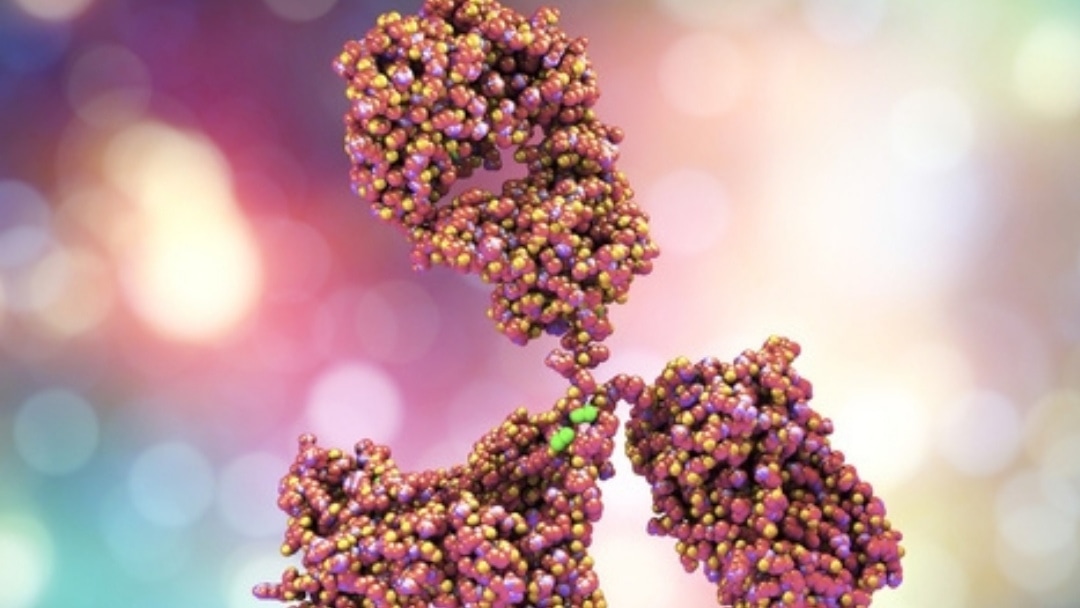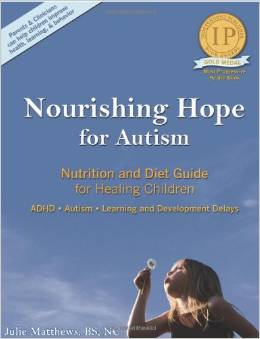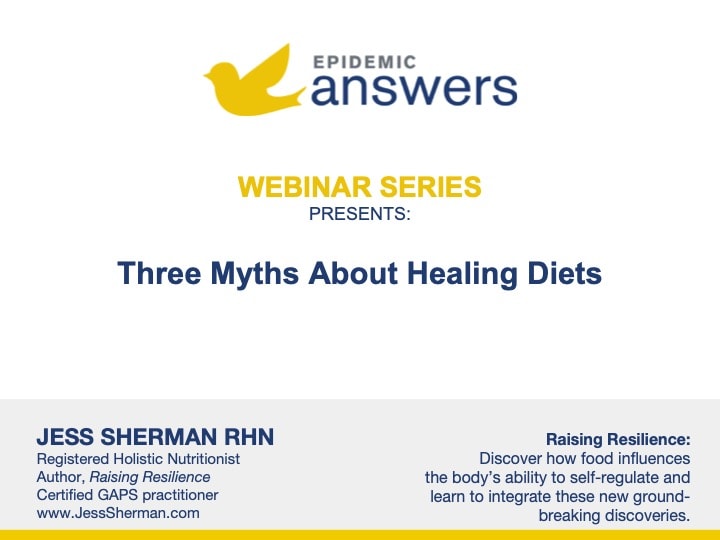Healing the gut begins with Hippocrates’ concept of “Let food be thy medicine and medicine be thy food.” Hippocrates, the Greek physician in 400 BC, also stated: “All diseases begin in the gut”. The concept has definitely been around for a while, so food is the first place to start when trying to heal the gut!
Healing the gut is a multi-faceted approach consisting of:
- Eating a clean diet
- Eliminating food sensitivities and intolerances
- Following a gut-healing diet
- Eating foods specific for gut healing
- Potentially incorporating the right nutritional supplements
- Eating good fats
- Optimizing stomach acid
- Potentially taking enzymes to improve digestion
- Encouraging good bile flow
- Supplementing prebiotics and probiotics to increase beneficial gut flora
- Improving liver detoxification
- Considering a fecal transplant
Eating a Clean Diet
Eating a clean diet means eating organic whole foods that are uncontaminated and free of additives and preservatives. A clean diet consists of:
- Non-genetically modified (GMO) foods
- Organic foods
- Grass-fed/pastured animal proteins
- Wild-caught, not farm-raised, fish
- Unprocessed, whole foods
- Foods free of preservatives and additives
- Clean, filtered water
Click here for more information about what eating a clean diet entails.
Eliminating Food Sensitivities and Intolerances
Hidden food sensitivities and intolerances are often a main driver of an unhealed gut. Because they are typically undetected, they are a main cause of chronic inflammation in the body. Food and food ingredients such as gluten, casein (found in dairy), eggs, corn, soy, nuts, peanuts, fish, shellfish, citrus foods and chocolate are common sources of food sensitivities and intolerances. An elimination diet is the gold standard for identification of these foods, and it is one of the most important things that you can do to improve your child’s health.
In addition, these laboratories can also help you discover which foods your child is sensitivite or intolerant to:
- Viome combines information from a microbiome test with a metabolic test to see how the body and the flora in the digestive system interact with specific foods.
- LRA Lymphocyte Response Assay by ELISA/ACT Biotechnologies is a delayed hypersensitivity test that looks directly at lymphocytes to detect delayed food and chemical hypersensitivities up to 504 items.
- Food and Chemical Sensitivity Testing by ALCAT tests over 450 substances to determine which food and other substances trigger chronic inflammation.
- Allergy and Immunology Overview by ALLETESS Medical Laboratory tests for environmental allergens, food allergies, yeast and mold allergies and gut immunity.
- IgG Food Allergy Test and Candida by Great Plains Laboratory tests for 93 foods with Candida, a yeast that increases and produces toxins that create holes in the intestinal lining leading to a leaky gut. Once in the blood, it can cause an inflammatory immune system response.
- Bloodprint Test (IgG) Airborne and Food Allergy Test (IgE) by Immunolabs is a delayed food reactivity test also comes with a nutritional program. The Airborne and Food Allergy Test is the immediate reactivity test for IgE.
- The Bloodspot IgG4 Food Antibody Profile by Genova Diagnostics measures levels of IgG4 antibodies specific to 30 commonly offending foods clearly identifying foods causing patient reactions.
- Multiple Test Arrays and Food Reactivity Screens by Cyrex Labs to screen for a large variety of different food and chemical sensitivities.
- A – 95 Food Panel by Meridian Valley Laboratory is a basic food allergy test panel which is a combined IgG4 and IgE by ELISA Method consisting of 95 commonly eaten foods and includes a free Candida screening.
Following a Gut-Healing Diet
Sometimes more than one diet is necessary, especially if your child has a complex medical condition such as autism spectrum disorder. Even if your child does not show a significant amount of improvement on a particular diet, then try another diet.
Here are some of the more common healing diets to help children recover from symptoms of autism, ADHD, allergies, asthma, mood disorders, autoimmune disorders, eczema, gastrointestinal disorders and other chronic health conditions:
- Autoimmune Paleo (AIP)
- Body Ecology Diet (BED)
- Elimination diet
- Failsafe diet
- Feingold diet
- GAPS (Gut And Psychology Syndrome) diet
- Gluten-free/casein-free (GF/CF) diet
- Ketogenic diet
- Low-glutamate diet
- Low-histamine diet
- Low-Oxalate Diet (LOD)
- Lutein-free diet (Sarah’s Diet)
- Mediterranean diet
- Paleo/primal diet
- Specific Carbohydrate Diet (SCD)
- Wahls protocol
- Whole 30 diet
Click here to learn more specifics about these healing diets and foods.
Eating Foods Specific for Gut Healing
Here are basic healing foods to include in your child’s diet. Items may or may not be excluded depending on which specialized healing diet you’re following:
- Fermented vegetables and foods:
- Kefir yogurts (preferably coconut-based)
- Bone broth (can be chicken, turkey or red meat bones)
- Algae and seaweeds:
- Wakame
- Dulse
- Kombu
- Chlorella (fresh water)
- Spirulina
- Cruciferous veggies:
- Brussels sprouts
- Cabbage
- Broccoli
- Cauliflower
- Broccoli rabe
- Root veggies and squashes:
- Rutabaga
- Turnips
- Summer squash
- Winter squash
- Onions
- Garlic
- Sweet potatoes
Potentially Incorporating Nutritional Supplements
We recommend working with a knowledgeable functional-medicine practitioner, naturopath or homotoxicologist for nutritional supplements that are specific to your child’s gut issues. Some of these could include the following:
- Glutamine for healing a leaky gut. Do not use glutamine if your child has high glutamates or a glutamate sensitivity because glutamine converts to glutamate and is an excitotoxin.
- Slippery elm for coating and soothing inflammation of damaged gut lining.
- Aloe vera for healing leaky gut and coating the intestines and starts healing process
- Butyric cal-mag (butyrate) for healing the gut lining.
- Licorice DGL for balancing cortisol levels and maintaining mucosal lining.
- Quercetin for improving the gut barrier and reduce histamine release.
- N-Acetyl-Glucosamine (NAG) for helping stop gastrointestinal irritation
- BiCarb by Klaire Labs for relieving symptoms of reflux, gas and acid indigestion.
- MSM (MethylSulfonylMethane) for improving allergies, healing gut permeability, aiding in detoxification and helping with constipation.
- Zinc for rebuilding the intestinal lining and aiding in growth and healing.
Eating Good Fats
Good-quality fats are NOT derived from vegetables or seeds, as they are highly inflammatory due to their high processing and large amounts of linoleic acid. Instead, good fats come from the following:
- Avocados
- Butter or ghee
- Wild fatty fish such as salmon and sardines
- Coconut oil
- MCT (Medium Chain Triglycerides) oil
- Cold-pressed olive oil
- Animal fats such as tallow from grass-fed beef
- Cod liver oil, which includes EPA and DHA
Optimizing Stomach Acid
A common misconception is that people who have acid reflux do so because they have too much stomach acid. Instaed, people who suffer from this condition often have too much stomach acid generated after they have eaten. There’s a timing mismatch because the stomach should start making it earlier, rather than later, in the digestion process.
Optimal amounts of stomach acid are crucial for:
- Breaking proteins down into amino acids
- Digesting and absorbing key nutrients such as vitamin B12 and magnesium
- Destroying pathogens that enter the gastrointestinal tract. If these pathogens aren’t taken out by stomach acid, they could possibly move into the intestines. Thus, having optimal amounts of stomach acid is a key to a healthy immune system.
Taking acid reflux medications such as proton-pump inhibitors can be dangerous in the long term because it can lead to deficiencies of key nutrients discussed above.
Work with a knowledgeable healthcare practitioner to look into the following supplements to optimize stomach acid production:
- Betaine hydrochloric acid (HCl)
- Zinc
- Salt
- Apple cider vinegar or water before a meal but not with a meal
Potentially Taking Enzymes to Improve Digestion
Many children with chronic health conditions tend to have lower pancreatic output of digestive enzymes, which are necessary for lowering food sensitivities, relieving gastrointestinal symptoms and eliminating biofilm. If your child’s pancreas doesn’t produce enough of these exocrine enzymes, a knowledgeable healthcare practitioner may choose to to have your child supplement with different kinds of enzymes such as:
- DPP-IV enzymes for gluten and casein sensitivities:
- Vital-zymes Complete by Klaire Labs
- TriEnza by Houston Nutriceuticals
- DPP-IV Forte by Kirkman Labs
- DPP-IV by Enzymatica
- Similase by Integrated Therapeutics
- Proteolytic enzymes for inflammation:
- Wobenzyme
- Pancreatic Enzymes by Vital Nutrients
- Serrapeptase
- Nattokinase
- Enzymes to help with phenol sensitivities:
- No Fenol by Houston Nutriceuticals
- Phenol Assist by Kirkman Labs
- Enzymes to help with fat digestion:
- Lipo by Enzymatica
- Lipase by Integrative Therapeutics
- Enzymes that help with protein digestion:
- Theragest by Klaire Labs
- Enzymes that help eliminate biofilm (encapsulated microbial cells):
- Interfase and Interfase Plus by Klaire Labs
- Bio Film Defense by Kirkman Labs
- Bromelaine can ease inflammatory conditions if taken between meals and can help with digestive problems if taken with meals.
Encouraging Good Bile Flow
Bile is produced by the liver and stored in the gallbladder. It is crucial for breaking down fats, removing toxins and absorption of certain nutrients. Its flow can be improved with the consumption of bitter foods such as:
- Leafy green veggies:
- Kale
- Mustard greens
- Arugula
- Watercress
- Beet tops
- Collard greens
- Mesculan salad
- Dandelion
- Parsley
- Escarole
- Endive
- Broccoli rabe
- Chicory
- Fenugreek
- Artichoke
- Asparagus
- Digestive bitters
Supplementing Prebiotics and Probiotics to Increase Beneficial Gut Flora
Work with a knowledgeable healthcare practitioner to determine which, if any, of the following probiotics and prebiotics can help with healing your child’s gut:
Probiotics:
- Klaire Labs-Therabiotic Complete
- Kirkman Labs-Probio Gold
- VSL#3
- Custom Probiotics D-Lactate
- Dr. Ohhira Professional Formula
- Culturelle
- Renew Life Ultima Flora
- Jarrow
- Gut Pro
- Genestra
- Allergy Research Group
- Pure Encapsulations
- Douglas Labs
- Sidona
- Metagenics
- DaVinci Labs
- FloraEnergetix
- Thorne Research
- Cardiovascular Research
Prebiotics are fruto-oligosaccharides (FOS) that can help feed and grow probiotics in the body:
- Klaire Labs (Biotagen)
- Jarrow
- Vital Nutrients
- Pure Encapsulations
- Genestra
Improving Liver Detoxification
A well functioning liver is important not only for providing bile for digestion, but it’s also necessary for processing hormones, processing histamine, removal of toxins from the bloodstream and conversion of excess blood sugar into glycogen to be stored as fat. We recommend working with a knowledgeable naturopath or homotoxicologist for therapies and supplements that can improve your child’s liver detoxification pathways.
Considering a Fecal Transplant
Fecal transplants may currently be considered a last-resort option for correcting the microbiome and healing the gut, but that is likely because they are somewhat new and because there are very few doctors and clinics who provide this therapy. The procedure entails taking the feces from a donor with a healthy microbiome and transplanting it into the recipient, who usually has an intractible infection of Clostridiales (C. difficile) or Bacteroides pathogenic bacteria. A reduction in symptoms can be profound and long-lasting.
Still Looking for Answers?
Visit the Epidemic Answers Practitioner Directory to find a practitioner near you.
Join us inside our online membership community for parents, Healing Together, where you’ll find even more healing resources, expert guidance, and a community to support you every step of your child’s healing journey.
Sources & References
Adams, J.B., et al. Comprehensive Nutritional and Dietary Intervention for Autism Spectrum Disorder-A Randomized, Controlled 12-Month Trial. Nutrients. 2018 Mar 17;10(3).
Adams, J.B., et al. Effect of a vitamin/mineral supplement on children and adults with autism. BMC Pediatr. 2011;11:111.
Adams, J.B., et al. Mercury in first-cut baby hair of children with autism versus typically-developing children. Toxicological & Environmental Chemistry. 2007 Jun;70(12):1046-51.
Adams, J.B., et al. Mercury, Lead, and Zinc in Baby Teeth of Children with Autism Versus Controls. Journal of Toxicology and Environmental Health. 2007 Jun;70(12):1046-51.
Adams, J.B., et al. Nutritional and metabolic status of children with autism vs. neurotypical children, and the association with autism severity. Nutr Metab (Lond). 2011 Jun 8;8(1):34.
Aucoin, M., et al. Major Depressive Disorder and Food Hypersensitivity: A Case Report. Neuropsychobiology. 2019 Oct 10:1-7.
Bahr, L.S., et al. Ketogenic diet and fasting diet as Nutritional Approaches in Multiple Sclerosis (NAMS): protocol of a randomized controlled study. Trials. 2020 Jan 2;21(1):3.
Boris, M., et al. Foods and additives are common causes of the attention deficit hyperactive disorder in children. Ann Allergy. 1994 May;72(5):462-8.
Borre, Y.E., et al. Microbiota and neurodevelopmental windows: implications for brain disorders. Trends Mol Med. 2014 Sep;20(9):509-18.
Bourre, J.M. Effects of nutrients (in food) on the structure and function of the nervous system: update on dietary requirements for brain. Part 1: micronutrients. J Nutr Health Aging. 2006 Sep-Oct;10(5):377-85.
Bourre, J.M. Effects of nutrients (in food) on the structure and function of the nervous system: update on dietary requirements for brain. Part 2 : macronutrients. J Nutr Health Aging. 2006 Sep-Oct;10(5):386-99.
Brenton, J.N., et al. Phase II study of ketogenic diets in relapsing multiple sclerosis: safety, tolerability and potential clinical benefits. J Neurol Neurosurg Psychiatry. 2022 Jun;93(6):637-644.
Brenton, J.N., et al. Pilot study of a ketogenic diet in relapsing-remitting MS. Neurol Neuroimmunol Neuroinflamm. 2019 Apr 12;6(4):e565.
Brown, et al. Observable essential fatty acid deficiency markers and autism spectrum disorder. Breastfeed Rev. 2014;22(2):21-6.
Buie, T., et al. Evaluation, diagnosis, and treatment of gastrointestinal disorders in individuals with ASDs: a consensus report. Pediatrics. 2010 Jan;125 Suppl 1:S1-18.
Buie, T., et al. Recommendations for evaluation and treatment of common gastrointestinal problems in children with ASDs. Pediatrics. 2010 Jan;125 Suppl 1:S19-29.
Camara-Lemarroy, C.R., et al. Focus on the gut-brain axis: Multiple sclerosis, the intestinal barrier and the microbiome. World J Gastroenterol. 2018 Oct 7;24(37):4217-4223.
Chenard, C.A., et al. Nutrient Composition Comparison between a Modified Paleolithic Diet for Multiple Sclerosis and the Recommended Healthy U.S.-Style Eating Pattern. Nutrients. 2019 Mar 1;11(3):537.
Critchfield, et al. The potential role of probiotics in the management of childhood autism spectrum disorders. Gastroenterol Res Pract. 2011;2011:161358.
de Magistris, et al. Alterations of the intestinal barrier in patients with autism spectrum disorders and in their first-degree relatives. J Pediatr Gastroenterol Nutr. 2010;51(4):418-24.
Di Majo, D., et al. Ketogenic and Modified Mediterranean Diet as a Tool to Counteract Neuroinflammation in Multiple Sclerosis: Nutritional Suggestions. Nutrients. 2022 Jun 8;14(12):2384.
Engelenburg, H.J., et al. Multiple sclerosis and the microbiota: Progress in understanding the contribution of the gut microbiome to disease. Evol Med Public Health. 2022 Jun 13;10(1):277-294.
Erickson, C.A., et al. Gastrointestinal Factors in Autistic Disorder: A Critical Review. Journal of Autism and Developmental Disorders. 2005 Dec;35(6):713-27.
Fan, Y., et al. Dietary Modulation of Intestinal Microbiota: Future Opportunities in Experimental Autoimmune Encephalomyelitis and Multiple Sclerosis. Front Microbiol. 2019 Apr 16;10:740.
Fettig, N.M., et al. Direct and indirect effects of microbiota-derived metabolites on neuroinflammation in multiple sclerosis. Microbes Infect. 2021 Jul-Aug;23(6-7):104814.
Grimaldi, R., et al. A prebiotic intervention study in children with autism spectrum disorders (ASDs). Microbiome. 2018 Aug 2;6(1):133.
Hamad, A.F., et al. Prenatal antibiotics exposure and the risk of autism spectrum disorders: A population-based cohort study. PLoS One. 2019 Aug 29;14(8):e0221921.
Hejitz, R.D., et al. Normal gut microbiota modulates brain development and behavior. Proc Natl Acad Sci U S A. 2011 Feb 15;108(7):3047-52.
HGuo, C.H., et al. Nutritional supplement therapy improves oxidative stress, immune response, pulmonary function, and quality of life in allergic asthma patients: an open-label pilot study. Altern Med Rev. 2012;17(1):42-56.
Hijazi, N., et al. Diet and childhood asthma in a society in transition: A study in urban and rural Saudi Arabia. Thorax. 2000 Sep;55(9):775-9.
Horvath, K., et al. Gastrointestinal abnormalities in children with autistic disorder. Journal of Pediatrics. 1999 Nov;135(5):559-63.
Irish, A.K., et al. Randomized control trial evaluation of a modified Paleolithic dietary intervention in the treatment of relapsing-remitting multiple sclerosis: a pilot study. Degener Neurol Neuromuscul Dis. 2017 Jan 4;7:1-18.
Jayasinghe, M., et al. The Role of Diet and Gut Microbiome in Multiple Sclerosis. Cureus. 2022 Sep 9;14(9):e28975.
Kang, D.W., et al. Microbiota Transfer Therapy alters gut ecosystem and improves gastrointestinal and autism symptoms: an open-label study. Microbiome. 2017 Jan 23;5(1):10.
Kang, D.W., et al. Long-term benefit of Microbiota Transfer Therapy on autism symptoms and gut microbiota. Scientific Reports. 9, 5821 (2019).
Karakula-Juchnowicz, H., et al. The Food-Specific Serum IgG Reactivity in Major Depressive Disorder Patients, Irritable Bowel Syndrome Patients and Healthy Controls. Nutrients. 2018 Apr 28;10(5). pii: E548.
Karakula-Juchnowicz, H., et al. The role of IgG hypersensitivity in the pathogenesis and therapy of depressive disorders. Nutr Neurosci. 2017 Feb;20(2):110-118.
Konikowska, K., et al. The influence of components of diet on the symptoms of ADHD in children. Rocz Panstw Zakl Hig. 2012;63(2):127-34.
Korpela, K., et al. Maternal Fecal Microbiota Transplantation in Cesarean-Born Infants Rapidly Restores Normal Gut Microbial Development: A Proof-of-Concept Study. Cell, 2020.
Martin, V.T., et al. Diet and Headache: Part 1. Headache. 2016 Oct;56(9):1543-1552.
Martinelli, V., et al. Gut-oriented interventions in patients with multiple sclerosis: fact or fiction? Eur Rev Med Pharmacol Sci. 2022 Feb;26(3):935-946.
McCann, D., et al. Food additives and hyperactive behaviour in 3-year-old and 8/9-year-old children in the community: a randomised, double-blinded, placebo-controlled trial. Lancet. 2007 Nov 3;370(9598):1560-7.
McCloud, E., et al. A medical nutrition therapy primer for childhood asthma: current and emerging perspectives. J Am Diet Assoc. 2011 Jul;111(7):1052–64.
Melbye, P., et al. Short-chain fatty acids and gut microbiota in multiple sclerosis. Acta Neurol Scand. 2019 Mar;139(3):208-219.
Millichap, J.G., et al. The diet factor in attention-deficit/hyperactivity disorder. Pediatrics. 2012 Feb;129(2):330-7.
Pelsser, L.M., et al. Effects of a restricted elimination diet on the behaviour of children with attention-deficit hyperactivity disorder (INCA study): a randomised controlled trial. Lancet. 2011 Feb 5;377(9764):494-503.
Philpott, H., et al. Allergy tests do not predict food triggers in adult patients with eosinophilic oesophagitis. A comprehensive prospective study using five modalities. Aliment Pharmacol Ther. 2016 Aug;44(3):223-33.
Shakoor, Z., et al. Prevalence of IgG-mediated food intolerance among patients with allergic symptoms. Ann Saudi Med. 2016 Nov-Dec;36(6):386-390.
Silfverdal, S.A., et al. [Food additives can increase hyperactivity in children. Results from a British study confirm the connection]. Lakartidningen. 2008 Feb 6-12;105(6):354-5.
Sloper, K.S., et al. Children with atopic eczema. II: Immunological findings associated with dietary manipulations. Q J Med. 1991 Aug;80(292):695-705.
Stare, F.J., et al. Diet and hyperactivity: is there a relationship. Pediatrics. 1980 Oct;66(4):521-5.
Stevens, L.J., et al. Dietary sensitivities and ADHD symptoms: thirty-five years of research. Clin Pediatr (Phila). 2011 Apr;50(4):279-93.
Stockton, S., et al. The Impact of a Food Elimination Diet on Collegiate Athletes’ 300-meter Run Time and Concentration. Glob Adv Health Med. 2014 Nov;3(6):25-40.
Titcomb, T.J., et al. Change in Micronutrient Intake among People with Relapsing-Remitting Multiple Sclerosis Adapting the Swank and Wahls Diets: An Analysis of Weighed Food Records. Nutrients. 2021 Oct 5;13(10):3507.
Titcomb, T.J., et al. Eating Pattern and Nutritional Risks among People with Multiple Sclerosis Following a Modified Paleolithic Diet. Nutrients. 2020 Jun 20;12(6):1844.
Vael, C., et al. Early intestinal Bacteroides fragilis colonization and development of asthma. BMC Pulmonary Medicine. 2008 Sep 26;8:19.
Verena, L., et al. Elimination diets’ efficacy and mechanisms in attention deficit hyperactivity disorder and autism spectrum disorder. Eur Child Adolesc Psychiatry. 2017; 26(9): 1067–1079.
Verlaet, A.A., et al. Nutrition, immunological mechanisms and dietary immunomodulation in ADHD. Eur Child Adolesc Psychiatry. 2014;23(7):519-29.
Virdee, K., et al. Food-specific IgG Antibody-guided Elimination Diets Followed by Resolution of Asthma Symptoms and Reduction in Pharmacological Interventions in Two Patients: A Case Report. Glob Adv Health Med. 2015 Jan;4(1):62-6.
Wahls, T.L. Dietary Approaches to Treating Multiple Sclerosis-Related Symptoms. Phys Med Rehabil Clin N Am. 2022 Aug;33(3):605-620.
Wahls, T.L., et al. Dietary approaches to treat MS-related fatigue: comparing the modified Paleolithic (Wahls Elimination) and low saturated fat (Swank) diets on perceived fatigue in persons with relapsing-remitting multiple sclerosis: study protocol for a randomized controlled trial.Trials. 2018 Jun 4;19(1):309.
Wahls, T.L., et al. Impact of the Swank and Wahls elimination dietary interventions on fatigue and quality of life in relapsing-remitting multiple sclerosis: The WAVES randomized parallel-arm clinical trial. Mult Scler J Exp Transl Clin. 2021 Jul 31;7(3):20552173211035399.
Wahls, T.L., et al. Review of Two Popular Eating Plans within the Multiple Sclerosis Community: Low Saturated Fat and Modified Paleolithic. Nutrients. 2019 Feb 7;11(2):352.
Wang, L., et al. Gastrointestinal microbiota and metabolite biomarkers in children with autism spectrum disorders. Biomark Med. 2014;8(3):331-44.
Wang, X., et al. Role of Gut Microbiota in Multiple Sclerosis and Potential Therapeutic Implications. Curr Neuropharmacol. 2022;20(7):1413-1426.
Warner, B.B. The contribution of the gut microbiome to neurodevelopment and neuropsychiatric disorders. Pediatr Res. 2019 Jan;85(2):216-224.
White, E., et al. The Effect of Nutritional Therapy for Yeast Infection (Candidiasis) in Cases of Chronic Fatigue Syndrome. Journal of Orthomolecular Medicine. 2005;20(3).
Xie, Y., et al. Effects of Diet Based on IgG Elimination Combined with Probiotics on Migraine Plus Irritable Bowel Syndrome. Pain Res Manag. 2019 Aug 21;2019:7890461.
Resources
Articles
Autism: More than hope; non-verbal 19-year-old says “mama” after FMT and shows corrected microbiome. Trial Site News, October 23, 2022.
CBS News: ADHD Diet Study Suggests Healthy Eating May Help Kids
Chicago Tribune: Do Diet Changes Help ADHD Children?
The Feingold Diet: Our Family’s Experience with a Dye-Free Diet
Julie Matthew’s BioIndividual Nutrition recipes
Julie Matthew’s BioIndividual Nutrition Feingold Diet / Failsafe Diet
Our Journey with the Feingold Diet
Books
Ballantyne, Sarah. Paleo Approach: Reverse Autoimmune Disease Heal Your Body. Victory Belt Publishing, 2014.
Campbell-McBride, Natasha. Gut and Psychology Syndrome: Natural Treatment for Autism, Dyspraxia, A.D.D., Dyslexia, A.D.H.D., Depression, Schizophrenia. Medinform Publishing. 2010.
Cordain, Loren. The Paleo Diet Revised: Lose Weight and Get Healthy by Eating the Foods You Were Designed to Eat. Harvest, 2010.
Davis, Sheri. All Natural Mom’s Guide to the Feingold Diet: A Natural Approach to ADHD and Other Related Disorders. Sheri Davis, 2014.
Ernsperger, Lori, et al. Just Take a Bite: Easy, Effective Answers to Food Aversions and Eating Challenges! Future Horizons, 2004.
Feingold, Ben. The Feingold Cookbook for Hyperactive Children, and Others Associated with Food Additives and Salicylates. Random House, 1979.
Feingold, Ben. Why Your Child Is Hyperactive: The Bestselling Book on How ADHD Is Caused by Artificial Food Flavors and Colors. Random House, 1985.
Galland, Leo. The Effect of Intestinal Microbes on Systemic Immunity. Excerpted from Power Healing. Random House, 1998.
Hersey, Jane. Why Can’t My Child Behave?: Why Can’t She Cope? Why Can’t He Learn? The Feingold Diet Updated for Today’s Busy Families. Pear Tree Press, 2014.
Lambert, Beth. A Compromised Generation: The Epidemic of Chronic Illness in America’s Children. Sentient Publications, 2010.
Long, R.W. Push the Rock: Second Chances on the Road to Kilimanjaro. First Summit Project, 2015.
Matthews, Julie. Nourishing Hope for Autism: Nutrition and Diet Guide for Healing Our Children. Healthful Living Media, 2008.
Sisson, Mark. The Primal Blueprint: Reprogram Your Genes for Effortless Weight Loss, Vibrant Health, and Boundless Energy. Primal Nutrition, Inc., 2019.
Tam, Michelle, et al. Nom Nom Paleo: Food for Humans (Volume 1). Andrews McMeel Publishing, 2013.
Voegtlin, Walter. The Stone Age Diet: Based on In-depth Studies of Human Ecology and the Diet of Man. Vantage Press, 1975.
Wahls, Terry. The Wahls Protocol: A Radical New Way to Treat All Chronic Autoimmune Conditions Using Paleo Principles. Avery, 2020.
Wahls, Terry. The Wahls Protocol Cooking for Life: The Revolutionary Modern Paleo Plan to Treat All Chronic Autoimmune Conditions. Avery, 2017.




